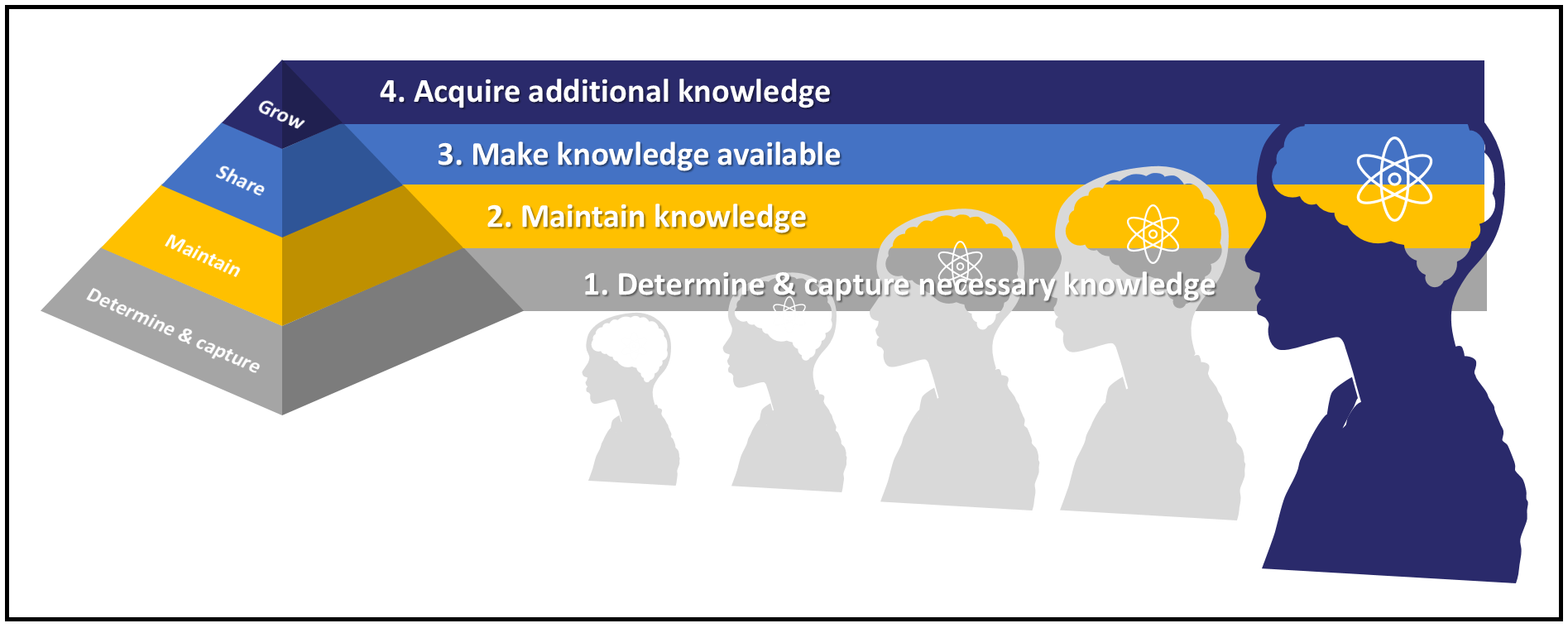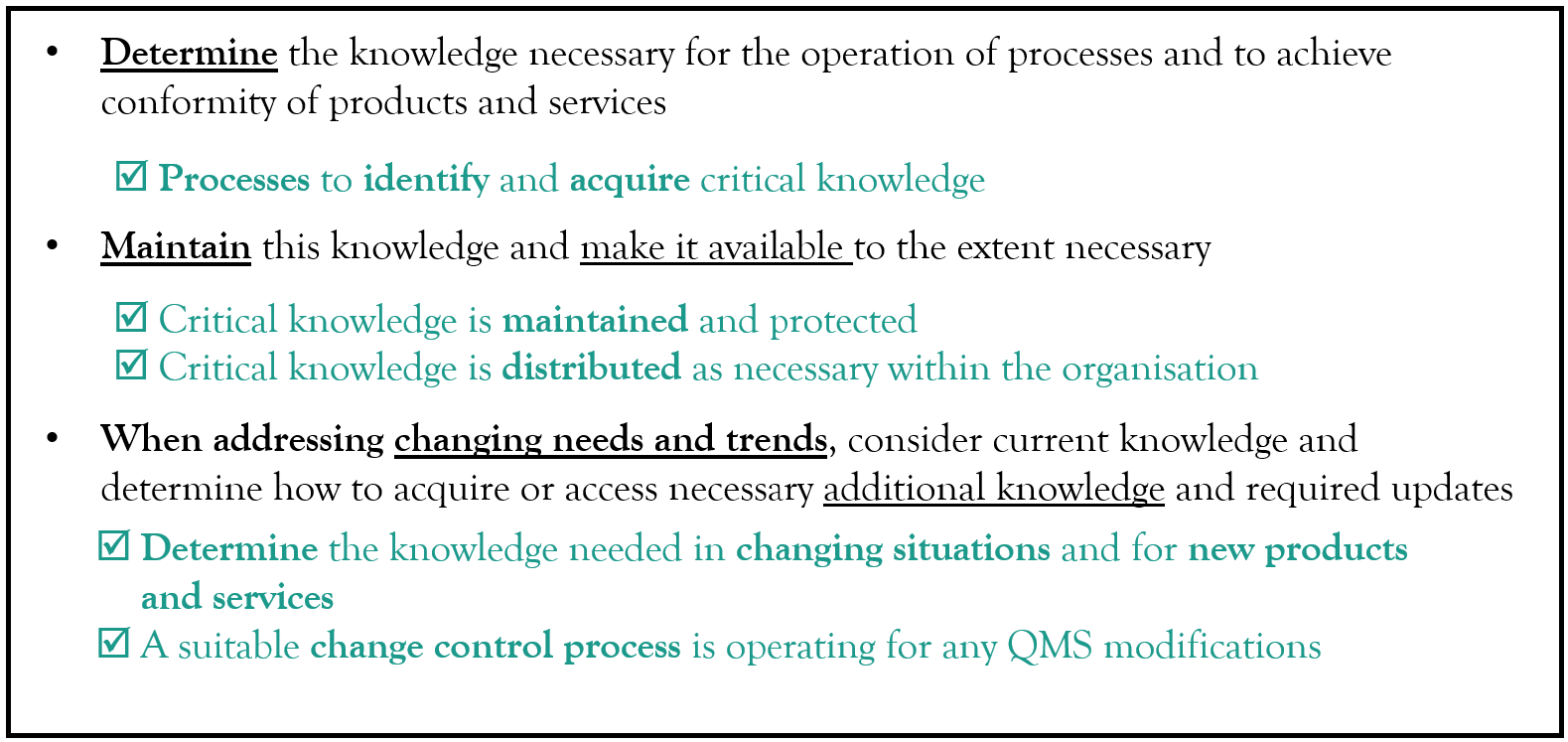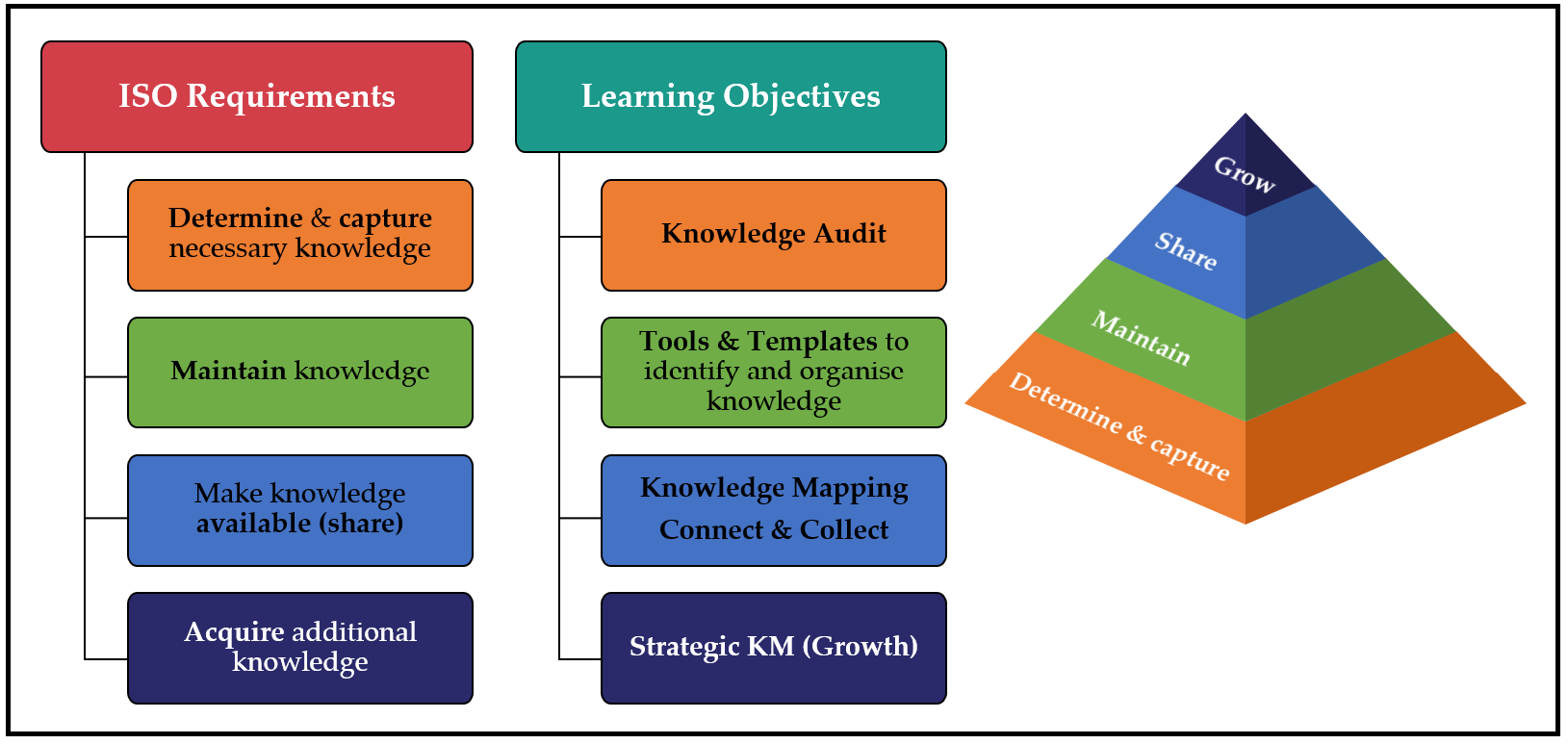- Determines the knowledge necessary for the operation of processes and for achieving conformity of products and services
- Maintains knowledge and make it available to the extent necessary
- Considers the current organizational knowledge and compare it to changing needs and trends
- Acquires the necessary additional knowledge
This module has been implemented in order to ensure organizations are insulated to a degree from the increasingly complex business environment, where the volatility, uncertainty, complexity and ambiguity are rapidly increasing.
Clause 7.1.6 ‘Organisational Knowledge’

Organizational Knowledge is defined as knowledge that is specific to the organization, gained by experience and is used to achieve the organization’s objectives. Below are some examples of different types of organizational knowledge
Where is ‘Organisational Knowledge’? (Examples)

In order to effectively manage your organizational knowledge, the below model provides a structured system in order to do so, and remain in compliance with this new ISO 9001:205 requirements.
RESOLUTION
4 steps to manage your organisational knowledge


Summary

For more information on our ISO 9001:2015 KM training sessions, please click here.
